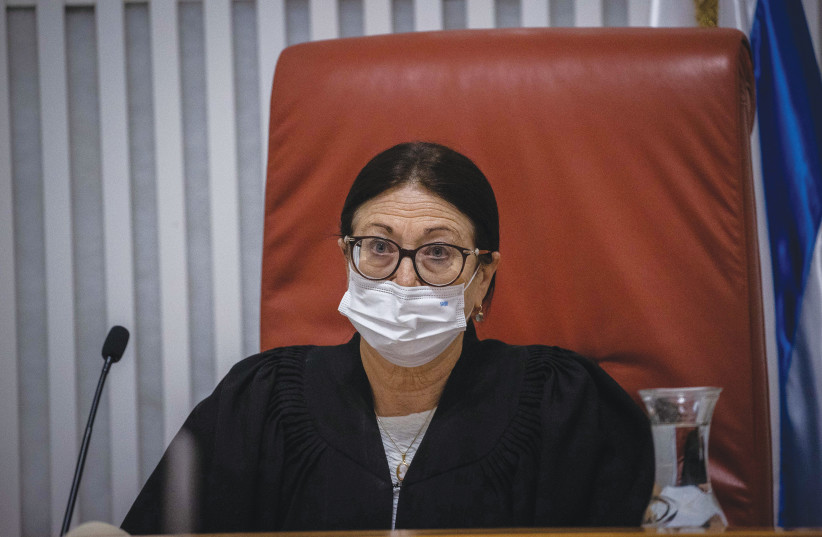The High Court of Justice on Wednesday rejected a petition by a number of NGOs and media organizations to force the government to release its “secret” coronavirus cabinet minutes.
The petition is about whether the government can make even non-security cabinet meetings classified with unlimited discretion on the issue and with vast implications for the future of how much the public gets to peek into the halls of power.
The three High Court justices sitting on the case, President Esther Hayut, Justice Uzi Vogelman and Justice Yitzhak Amit, were all skeptical that after over 70 years in which the government had discretion on this issue, suddenly the traditional position should be completely overturned.
They added that the government actually had released significant amounts of information relating to its cabinet debates and decisions, which further reduced any argument that the government was not showing sufficient transparency.
What happened at the last Israeli High Court hearing?

A hearing on the issue took place on May 30, with the initial petition dating back to April 2020.
The petition was delayed because the Netanyahu government maneuvered to have it heard first by the district court. The government then asked for amendments to reflect the government’s transition to an elected government.
State Lawyer Avi Milikovsky said in May that governments have always had complete discretion to decide which cabinet meetings would remain classified in order to allow cabinet ministers to have an open debate about the issues at hand.
In addition, Milikovsky said that in order to arrive at the right policy, cabinet ministers must sometimes take unpopular political positions. If cabinet minutes were to be made public beyond the discretion of the cabinet itself, many cabinet ministers might make policy choices on the basis of populist politics.
What about the other side?
However, lawyer Shahar Ben-Meir said on behalf of the Movement for Freedom of Information and other lawyers and media organizations that the government has overused its discretion to declare just about everything in its cabinet meetings classified.
He gave the example of the government opening a new peanut butter factory and declaring it classified if it wanted to.
The problem was specifically the coronavirus pandemic
The problem in this case, of course, was the coronavirus pandemic.
Ben-Meir said this was especially problematic when the coronavirus wave hit in early 2020 and a transitional government without any transparency severely limited basic liberties.
The justices’ skepticism, however, was decisive.
In fact, at the May hearing, Amit directly cornered Ben-Meir into admitting that even if this petition only involved the coronavirus issue, if the petition was successful based on the broad arguments that it was presenting, it could potentially lift the veil on all cabinet minutes.
The hearing involved a detailed and esoteric analysis of a number of provisions. These related to the issue of secrecy and how to read the related relevant statutory issues in light of different interpretations that could be offered about how far the cabinet’s discretion should go regarding classifying non-security cabinet minutes.
The hearing was televised live as part of an ongoing pilot program by the High Court to endorse greater transparency of its own hearings on cases concerning major constitutional issues.
